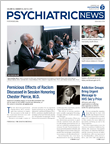“Socrates was a Greek philosopher who went around giving people good advice. They poisoned him.” –Anonymous
Relational psychoanalysis is based on the understanding that psychic structure is formed and modified within human relationships, and thus healing occurs within the experience of the therapeutic relationship. Because the therapist is using his or her self directly in the healing process, relational psychoanalysis demands an ethical approach and vigilance against exploiting the power dynamics inherent in a treatment relationship. Socrates was concerned with power dynamics, too, and might have asked some interesting questions about this relatively young psychoanalytic approach.
With his focus on justice and moral goodness, Socrates asserted that people should be concerned about the welfare of their souls rather than worry about their families, careers, and political responsibilities. This implicitly insulted prominent Athenians, who brought him to trial on charges of heresy and corrupting the minds of youth. He was sentenced to death by drinking an elixir that contained poison hemlock. Although he was offered an opportunity to escape, he chose to submit to his sentence because he believed it was morally correct to accept the will of his community.
Echoes of Socrates’ pedagogic style of inquiry may be found in the scientific method, in which a hypothesis is tested through a series of investigations to arrive at verifiable answers. Additionally, a version of the Socratic method may be a familiar mode of interaction for mental health professionals. Psychiatrists emulate Socrates when we ask questions from the standpoint of unencumbered curiosity.
Relational psychoanalysis places an emphasis on mutual construction of meaning in the therapeutic relationship. Instead of the therapist being the expert who delivers wise interpretations at the correct moment to bring insight to the patient, both patient and analyst are considered experts. The patient is an expert in his or her experience and values, and the analyst is an expert in treatment. Within the healing relationship, the analyst and patient discover together what is true for the patient.
Socrates would appreciate that a relational approach to treatment diminishes the notion of the powerful professional ministering to the compliant patient. He would approve of a technique that focuses on creating a safe relationship in which to ask questions about the nature of relationships, a continued process of inquiry to deepen understanding. This experience subtly transforms the patient’s awareness of what can happen in a relationship, creating a new knowledge.
Few of us are relational psychoanalysts, but we can all take a relational approach to treatment, research, or administrative work. By focusing on asking questions, deeply listening to the answers, and attending to our own feelings within the relationship, we will learn more about the other person, the relationship, and ourselves. This requires humility and openness to receiving new information about oneself. It is aided by mindful attention to one’s own behavior in the interaction.
Even an informed-consent discussion about a medication could be transformed through a relational approach, so that rather than merely listing benefits, risks, and alternatives to a particular treatment, the psychiatrist could engage the patient in a discussion of the symptoms that are most important to address and the potential side effects that are of greatest concern to the patient. The patient might come away from that informed-consent exchange feeling more understood by the psychiatrist, more willing to try the medication, more hopeful about the outcome, and more in charge of his or her treatment.
In the daily bustle of clinical or administrative practice, it is easy to fall back on our status as experts, leaders of the team, dispensers of definitive answers. What would happen if we emulated Socrates with a stance based on inquiry and turned our focus to listening more than speaking and to asking more than telling? ■

